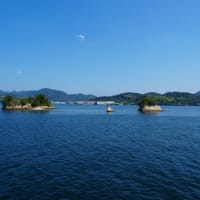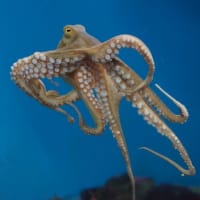As expected, the world did not trust them, and the Chinese people there actually saw Japanese soldiers, so they knew.
It is a chapter that was sent out on 2018-07-02, titled.
The following is from the monthly magazine Sound Argument, published on 2018/6/30.
Announcer Shiro Suzuki talks about
Lies of the Nanking Massacre and Memories of the Repatriation
Titled "China Captured My Innocent Father...," this paper is a must-read for people in Japan and around the world.
There is not a lie anywhere in this paper...
And that it is China and the Korean peninsula that are lying,
And that the media, including the Asahi Shimbun and NHK, have been acting as their proxies,
Tragically, many of the politicians, so-called human rights lawyers, and people who have held important positions in the Japan Federation of Bar Associations have been sympathizing with them,
The so-called cultural people, just like them...
The world's so-called intellectuals and journalists,
It is long overdue for the people of the world to know.
I could not help but shed tears many times while reading this article by Shiro Suzuki.
My Experience of Visiting Nanjing
I was born in 1938, just after the Battle of Nanjing took place.
My father established a Japan-China trading company in Tianjin and also operated a company in Beijing that delivered military supplies and aid to the Japanese military.
My mother and I soon moved to mainland China, and when I was five years old, my father took me to visit Nanjing.
I'm not sure of the details, but perhaps he was one of my father's business partners or had received aid supplies.
We were invited by a wealthy family in Nanjing with whom he had a connection.
I was five years old but remember a long tunnel-like gate marked "China Gate" in the city's center.
After walking through the long, dark tunnel, I saw many stalls lined up.
I vividly remember as a child, I was excited to see all kinds of unusual items for sale.
The town was peaceful.
It was peaceful and bustling.
I was never told to be careful of Chinese people who might attack me while I was walking in the city.
If there had been a "massacre," I would have heard about it, even in fragments, but I was never aware of such a thing.
I was never even aware of any "massacres.
So there was no such thing as a "massacre," and there never was.
The wealthy man I was invited to had a Chinese wife called Ma Tai Tai.
She was a sturdy, well-built woman who was adored by everyone and had a sense of dignity, just like a mother in Japan.
Ma Tai Tai welcomed us with open arms.
She even gave me a piggyback ride while holding me in her arms and praised my ears, telling me I had "good ears."
She even rubbed me with her cheeks.
Anyway, the local Chinese people's feelings toward Japan were excellent.
It was because the Japanese soldiers had an excellent reputation.
Japanese soldiers were indeed strong when they fought.
This is probably because our generation is imbued with the old Yamato Spirit.
Anyway, we will do it.
Don't be afraid to die.
There was a thorough awareness that it was honorable to die for Japan.
*This kind of consciousness is entirely absent from the activists inhabiting some cities in Akita Prefecture who are now opposing Aegis Ashore, which the government is about to deploy to protect all of Japan from missile attacks by an evil dictatorship, and the Akita prefectural governors who are sympathetic to this opposition. I have never been angry at Northeasterners, but for once, I have sincere contempt and anger toward these Akita people...for if they are Northeasterners, I am ashamed to be a Northeasterner*.
But while they may be brave, they are not barbaric.
I was five years old at the time, and from that point on, I wished that I, too, would eventually become a soldier, go to war, and completely crush the enemy by jade.
That had been my dream since I was a small child, and I wanted to enter an early childhood school.
My father repeatedly told me, "Shiro, it is important for a soldier to be strong but also kind and considerate."
Even now, that thought still resides somewhere in my heart.
When the Japanese soldiers captured Nanjing, the Chinese who had fled began to return in large numbers.
Some of them even made their own Hinomaru armbands and came back.
They were not afraid of the Japanese soldiers at all.
Instead, they were relieved that they could now rest easy.
This feeling was the same in Beijing and Tianjin.
Unlike Chinese soldiers, local people welcomed Japanese soldiers wherever they went.
In terms of discipline and attitude toward the common people, they were already a world apart from the Chinese soldiers.
There was no rape of women.
Medics cared for sick people and never took anything from them.
Whenever they received something, they would always hand over military currency and say, "You can exchange it for money later."
These scenes were unbelievable to the Chinese.
It was because the Chinese soldiers were involved in a great deal of looting and rape and were disliked by the local Chinese.
When the Chinese soldiers were defeated, they attacked villages along the way, stealing things, setting fires, and even raping people.
I heard this story directly from a Japanese soldier who served in the army after the war, and the Japanese soldiers were very angry.
There was also a significant incident in which Chiang Kai-shek broke the embankment of the Yellow River, and a million people died.
This happened in June of 1938.
The Japanese army halted its advance and came to the rescue.
I saw a picture of Japanese soldiers rescuing disaster victims by floating a messenger boat on the other side of the sea in the overflowing water.
This is precisely what we would call peacekeeping operations today.
However, the disaster caused 6 million victims, and Chiang Kai-shek publicized the fact that the Japanese army had done it.
As expected, the world did not believe it, and the Chinese people there actually saw Japanese soldiers, so they understood.
For the Chinese, the threat was the Chinese soldiers, who did not know what they would do.
This article continues.

2024/7/8 in Akashi
















